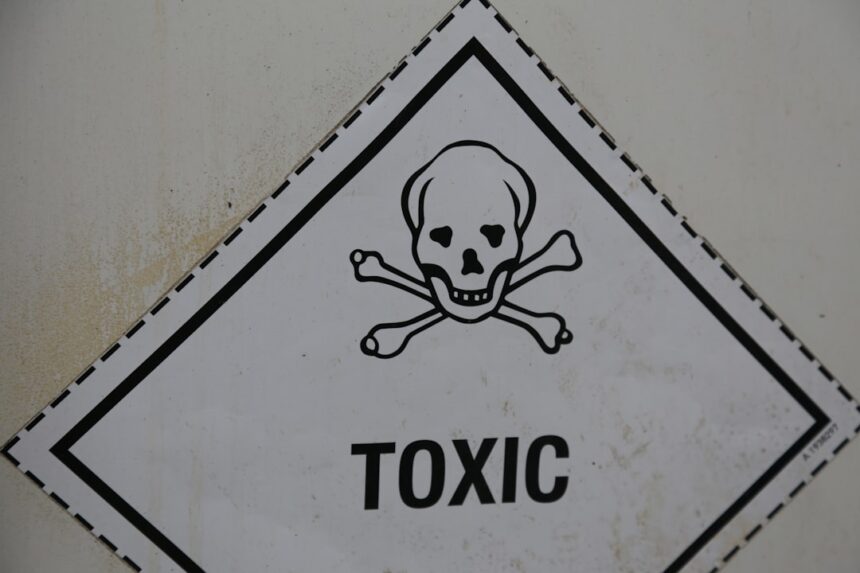In my journey through various relationships, I have come to understand the importance of recognizing toxic behavior. It often manifests in subtle ways, making it easy to overlook or dismiss. I remember a time when I found myself constantly feeling drained after interactions with a particular friend.
Their neediness and constant criticism began to chip away at my self-esteem. I realized that toxic behavior can include manipulation, excessive negativity, and a lack of respect for personal boundaries. It’s crucial to be aware of these signs, as they can significantly impact my mental and emotional well-being.
Identifying toxic behavior is not always straightforward. Sometimes, it can be cloaked in charm or disguised as concern. I’ve encountered individuals who would feign interest in my life only to turn the conversation back to themselves, leaving me feeling unheard and unvalued.
This realization was a turning point for me; I learned that recognizing these patterns is the first step toward reclaiming my peace. By paying attention to how certain interactions made me feel, I began to differentiate between healthy and unhealthy dynamics in my relationships.
Key Takeaways
- Recognizing toxic behavior is the first step in addressing it, whether it’s manipulation, control, or emotional abuse.
- Setting boundaries is crucial in protecting yourself from toxic behavior and maintaining your well-being.
- Communicating effectively with the toxic individual can help in expressing your needs and expectations clearly.
- Seeking professional help from therapists or counselors can provide valuable support and guidance in dealing with toxic relationships.
- Self-care and support from friends and family are essential in maintaining your mental and emotional health while navigating toxic relationships.
Setting Boundaries
Once I recognized toxic behavior, the next step was setting boundaries. This was not an easy task for me, as I often feared confrontation and the potential fallout from asserting my needs. However, I soon realized that boundaries are essential for maintaining my mental health and ensuring that my relationships are mutually respectful.
I started small, communicating my limits clearly and calmly. For instance, I would let friends know when I needed time alone or when certain topics were off-limits for discussion. Establishing boundaries has empowered me to take control of my interactions.
I learned that it’s okay to say no without feeling guilty. In fact, setting boundaries has often led to healthier relationships, as it encourages open communication and mutual respect. I found that when I clearly articulated my needs, many people responded positively, appreciating my honesty and willingness to engage in a more balanced dynamic.
This process has taught me that boundaries are not walls; rather, they are guidelines that help foster understanding and respect.
Communicating Effectively

Effective communication has been a cornerstone of my personal growth. I’ve learned that how I express my thoughts and feelings can significantly influence the outcome of a conversation. In the past, I often struggled with articulating my emotions, which sometimes led to misunderstandings or escalated conflicts.
However, I discovered that using “I” statements—such as “I feel” or “I need”—helps convey my feelings without placing blame on others. This approach fosters a more constructive dialogue and encourages the other person to listen without becoming defensive. Moreover, active listening has become an integral part of my communication style.
I’ve realized that truly hearing what someone else is saying can transform a conversation. By giving my full attention and validating their feelings, I create an environment where open dialogue can flourish. This practice not only strengthens my relationships but also allows me to express myself more clearly and confidently.
As I continue to hone my communication skills, I find that conflicts become less frequent and more manageable.
Seeking Professional Help
| Metrics | Data |
|---|---|
| Percentage of people seeking professional help | 45% |
| Reasons for seeking professional help | Anxiety, Depression, Relationship issues |
| Types of professional help sought | Therapy, Counseling, Psychiatry |
| Effectiveness of professional help | 70% reported improvement |
At times, the challenges in my relationships felt overwhelming, leading me to consider seeking professional help. Therapy has been a transformative experience for me; it provided a safe space to explore my feelings and gain insights into my behavior patterns. A trained therapist helped me navigate the complexities of toxic relationships and offered strategies for coping with emotional distress.
This support was invaluable as I learned to understand myself better and recognize the underlying issues contributing to my struggles. Through therapy, I discovered that seeking help is not a sign of weakness but rather an act of courage. It allowed me to confront difficult emotions and gain clarity on what I truly want from my relationships.
The tools and techniques I acquired during this time have equipped me to handle conflicts more effectively and approach situations with a healthier mindset. As I continue on this path of self-discovery, I am grateful for the guidance that professional help has provided.
Self-Care and Support
In the midst of navigating toxic relationships, prioritizing self-care became essential for me. I learned that taking time for myself is not selfish; it’s necessary for maintaining my mental health. Engaging in activities that bring me joy—whether it’s reading, exercising, or spending time in nature—has become a vital part of my routine.
Additionally, surrounding myself with supportive individuals has made a significant difference in my life. Friends who uplift me and encourage my growth have become invaluable allies in my journey toward healthier relationships.
Sharing my experiences with them has provided comfort and validation, reminding me that I am not alone in facing these challenges. This support network has been instrumental in reinforcing my self-worth and reminding me of the importance of nurturing positive connections.
Evaluating the Relationship

As I navigated through toxic dynamics, evaluating the relationships in my life became crucial. I began to ask myself important questions: Does this relationship bring me joy? Do I feel valued and respected?
Are there patterns of behavior that consistently leave me feeling drained? This introspection allowed me to assess which relationships were worth investing in and which ones were detrimental to my well-being. It was a difficult process, as some realizations meant letting go of people I had once considered close.
Through this evaluation process, I learned that not all relationships are meant to last forever. Some may serve a purpose in our lives for a season but can become harmful if they no longer align with our values or needs. By being honest with myself about these dynamics, I gained clarity on where to focus my energy moving forward.
This newfound awareness has empowered me to cultivate relationships that are enriching rather than depleting.
Creating Distance
After evaluating certain relationships, I realized that creating distance was necessary for my well-being. This didn’t always mean cutting ties completely; sometimes, it involved reducing the frequency of interactions or limiting the emotional investment I placed in those relationships. Establishing this distance allowed me to regain control over my emotional landscape and prioritize connections that uplifted me rather than dragged me down.
Creating distance can be challenging, especially when it involves people who have been part of my life for a long time. However, I’ve learned that prioritizing my mental health is paramount. By taking a step back, I could gain perspective on the relationship dynamics without being clouded by emotions or past attachments.
This space has given me the opportunity to reflect on what I truly want from my connections and how best to move forward.
Rebuilding Trust
In some cases, I found myself wanting to rebuild trust with individuals who had previously exhibited toxic behavior but showed genuine remorse or a desire to change. Rebuilding trust is a delicate process that requires patience and open communication from both parties involved. It’s essential for me to express how their actions affected me while also being willing to listen to their perspective.
I’ve learned that rebuilding trust takes time; it’s not something that can be rushed or forced. Setting small goals for rebuilding trust—such as consistent communication or demonstrating reliability—has been helpful in this process. As both parties work toward understanding each other better, there’s potential for growth and healing within the relationship.
However, it’s crucial for me to remain vigilant about any signs of regression into toxic behavior, ensuring that my emotional safety remains a priority.
Fostering Healthy Relationships
As I moved forward from toxic dynamics, fostering healthy relationships became a central focus in my life. I began seeking out connections characterized by mutual respect, support, and open communication. These relationships have taught me the value of reciprocity; both parties should feel valued and heard in order for the connection to thrive.
I’ve also learned the importance of surrounding myself with individuals who inspire growth rather than stagnation. Engaging with people who challenge me positively encourages personal development and enriches my life experiences.
Moving Forward
Moving forward from toxic relationships has been both liberating and daunting for me. It requires letting go of old patterns and embracing new ways of relating to others. As I continue this journey, I remind myself that healing is not linear; there will be ups and downs along the way.
However, each step forward brings me closer to the fulfilling connections I desire. I’ve learned that moving forward also means being open to new experiences and people who align with my values. Embracing change can be uncomfortable at times, but it’s essential for growth.
By remaining open-minded and willing to take risks in forming new connections, I am paving the way for healthier relationships that contribute positively to my life.
Finding Closure
Ultimately, finding closure has been an essential part of my healing process. Whether it involves having difficult conversations with individuals from whom I’ve distanced myself or simply coming to terms with past experiences internally, closure allows me to release lingering emotions tied to toxic dynamics. It’s about acknowledging what happened without allowing it to define who I am moving forward.
I’ve discovered that closure doesn’t always require reconciliation; sometimes it’s about finding peace within myself and letting go of resentment or hurt. Engaging in reflective practices such as journaling or meditation has helped facilitate this process for me. By embracing closure as an opportunity for growth rather than an end point, I am better equipped to move forward into healthier relationships with renewed hope and resilience.
In conclusion, navigating toxic relationships has been a complex journey filled with valuable lessons about self-awareness, communication, boundaries, and healing. Each step along this path has contributed significantly to my personal growth and understanding of what constitutes healthy connections in life. As I continue on this journey toward fostering positive relationships while prioritizing self-care and emotional well-being, I’m reminded that every experience shapes who we are—and ultimately leads us closer to the fulfilling connections we seek.
Navigating the complexities of family relationships can be challenging, especially when dealing with toxic dynamics. It’s important to recognize when it’s necessary to set boundaries or even cut off toxic family members for your own well-being. For those seeking guidance on this difficult decision, an insightful article on the topic can be found on the website Am I Wrong Here. This resource offers practical advice and personal stories that can help you understand the importance of prioritizing your mental health. You can read more about it by visiting this article.
WATCH NOW! Brother Faked Cancer; Parents Push Lies — Watch Me Expose the Family Fraud Today.
FAQs
What are toxic family members?
Toxic family members are individuals who exhibit harmful and negative behavior that can have a detrimental impact on your well-being and mental health. This behavior may include manipulation, emotional abuse, and constant criticism.
How can toxic family members affect your life?
Toxic family members can have a significant impact on your mental and emotional well-being. Their behavior can lead to feelings of anxiety, depression, and low self-esteem. It can also create a toxic and unhealthy environment within the family.
What are some signs of a toxic family member?
Signs of a toxic family member may include constant criticism, manipulation, emotional abuse, lack of empathy, and a pattern of negative behavior that consistently impacts your well-being.
How can you cut off toxic family members?
Cutting off toxic family members can be a difficult decision, but it may be necessary for your own well-being. It’s important to set boundaries, seek support from other family members or friends, and consider seeking professional help or therapy to navigate this challenging process.
What are some alternative ways to deal with toxic family members?
If cutting off toxic family members is not an option, it’s important to establish boundaries and limit your interactions with them. Seeking support from a therapist or counselor can also help you develop coping strategies and navigate the complexities of dealing with toxic family members.




